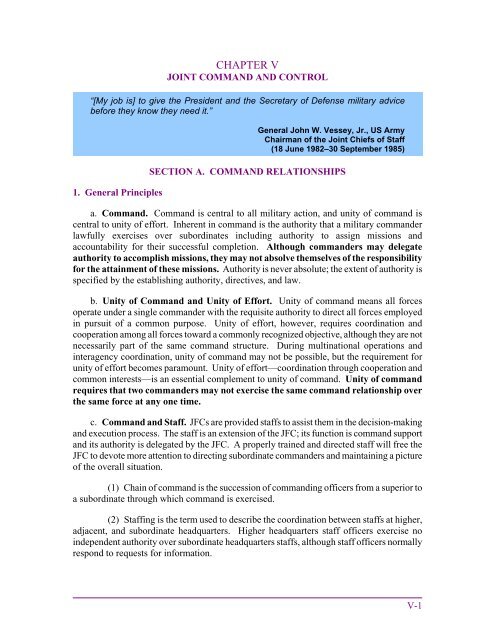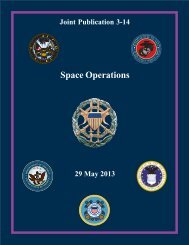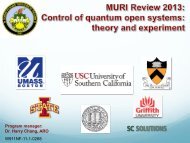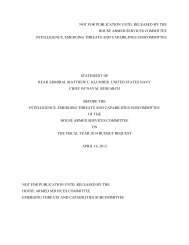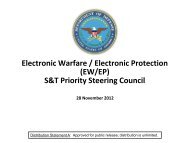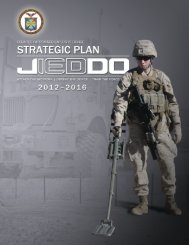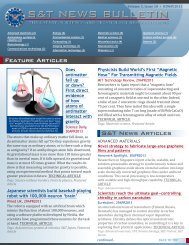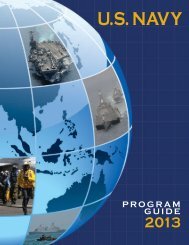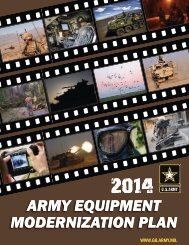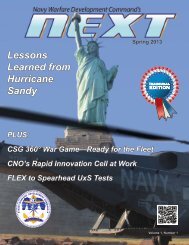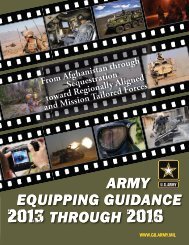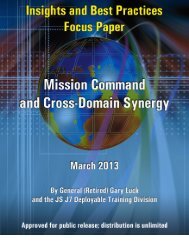JP 1, Doctrine for the Armed Forces of the United States - Defense ...
JP 1, Doctrine for the Armed Forces of the United States - Defense ...
JP 1, Doctrine for the Armed Forces of the United States - Defense ...
You also want an ePaper? Increase the reach of your titles
YUMPU automatically turns print PDFs into web optimized ePapers that Google loves.
CHAPTER V<br />
JOINT COMMAND AND CONTROL<br />
“[My job is] to give <strong>the</strong> President and <strong>the</strong> Secretary <strong>of</strong> <strong>Defense</strong> military advice<br />
be<strong>for</strong>e <strong>the</strong>y know <strong>the</strong>y need it.”<br />
1. General Principles<br />
General John W. Vessey, Jr., US Army<br />
Chairman <strong>of</strong> <strong>the</strong> Joint Chiefs <strong>of</strong> Staff<br />
(18 June 1982–30 September 1985)<br />
SECTION A. COMMAND RELATIONSHIPS<br />
a. Command. Command is central to all military action, and unity <strong>of</strong> command is<br />
central to unity <strong>of</strong> ef<strong>for</strong>t. Inherent in command is <strong>the</strong> authority that a military commander<br />
lawfully exercises over subordinates including authority to assign missions and<br />
accountability <strong>for</strong> <strong>the</strong>ir successful completion. Although commanders may delegate<br />
authority to accomplish missions, <strong>the</strong>y may not absolve <strong>the</strong>mselves <strong>of</strong> <strong>the</strong> responsibility<br />
<strong>for</strong> <strong>the</strong> attainment <strong>of</strong> <strong>the</strong>se missions. Authority is never absolute; <strong>the</strong> extent <strong>of</strong> authority is<br />
specified by <strong>the</strong> establishing authority, directives, and law.<br />
b. Unity <strong>of</strong> Command and Unity <strong>of</strong> Ef<strong>for</strong>t. Unity <strong>of</strong> command means all <strong>for</strong>ces<br />
operate under a single commander with <strong>the</strong> requisite authority to direct all <strong>for</strong>ces employed<br />
in pursuit <strong>of</strong> a common purpose. Unity <strong>of</strong> ef<strong>for</strong>t, however, requires coordination and<br />
cooperation among all <strong>for</strong>ces toward a commonly recognized objective, although <strong>the</strong>y are not<br />
necessarily part <strong>of</strong> <strong>the</strong> same command structure. During multinational operations and<br />
interagency coordination, unity <strong>of</strong> command may not be possible, but <strong>the</strong> requirement <strong>for</strong><br />
unity <strong>of</strong> ef<strong>for</strong>t becomes paramount. Unity <strong>of</strong> ef<strong>for</strong>t—coordination through cooperation and<br />
common interests—is an essential complement to unity <strong>of</strong> command. Unity <strong>of</strong> command<br />
requires that two commanders may not exercise <strong>the</strong> same command relationship over<br />
<strong>the</strong> same <strong>for</strong>ce at any one time.<br />
c. Command and Staff. JFCs are provided staffs to assist <strong>the</strong>m in <strong>the</strong> decision-making<br />
and execution process. The staff is an extension <strong>of</strong> <strong>the</strong> JFC; its function is command support<br />
and its authority is delegated by <strong>the</strong> JFC. A properly trained and directed staff will free <strong>the</strong><br />
JFC to devote more attention to directing subordinate commanders and maintaining a picture<br />
<strong>of</strong> <strong>the</strong> overall situation.<br />
(1) Chain <strong>of</strong> command is <strong>the</strong> succession <strong>of</strong> commanding <strong>of</strong>ficers from a superior to<br />
a subordinate through which command is exercised.<br />
(2) Staffing is <strong>the</strong> term used to describe <strong>the</strong> coordination between staffs at higher,<br />
adjacent, and subordinate headquarters. Higher headquarters staff <strong>of</strong>ficers exercise no<br />
independent authority over subordinate headquarters staffs, although staff <strong>of</strong>ficers normally<br />
respond to requests <strong>for</strong> in<strong>for</strong>mation.<br />
V-1


